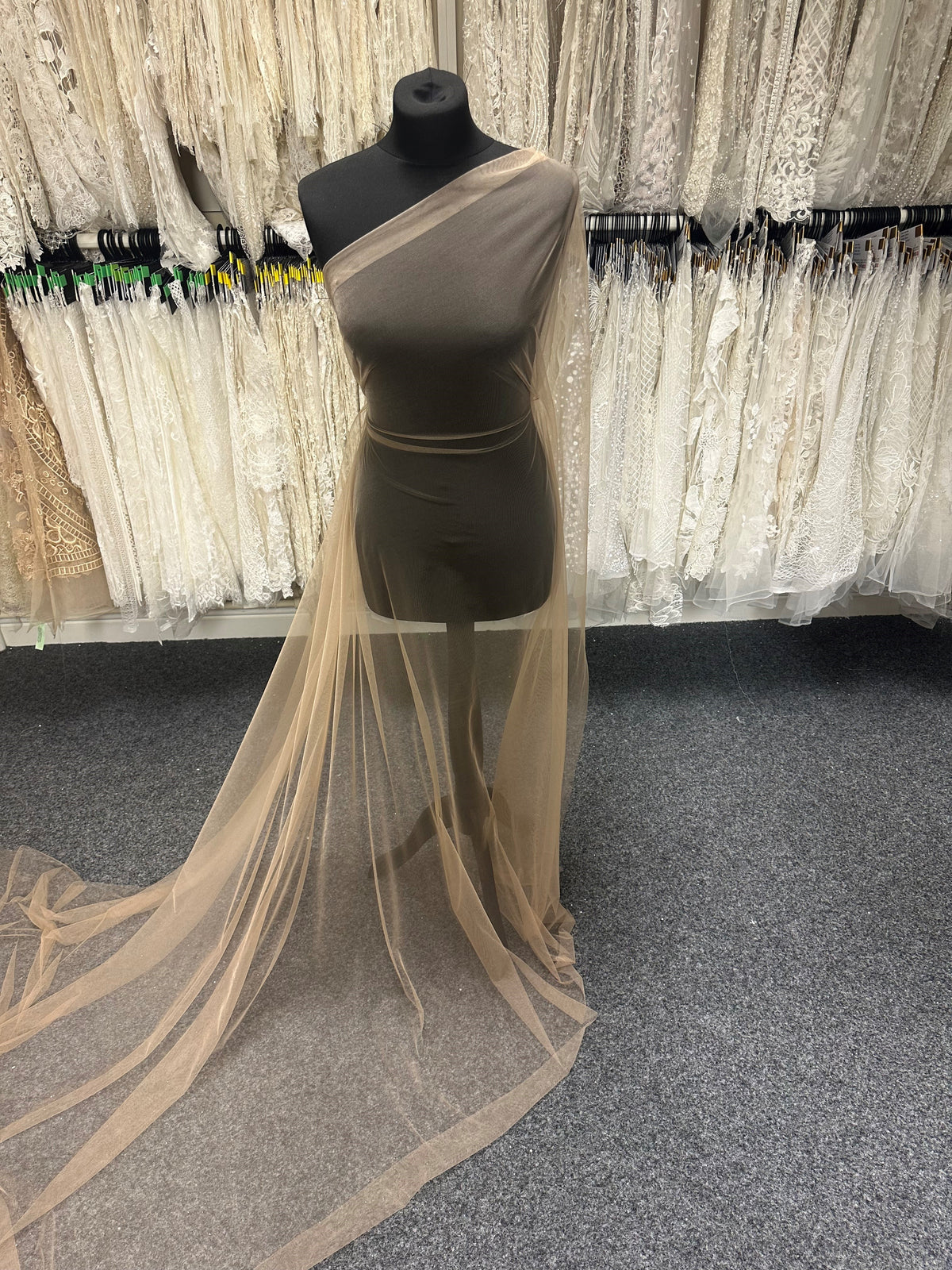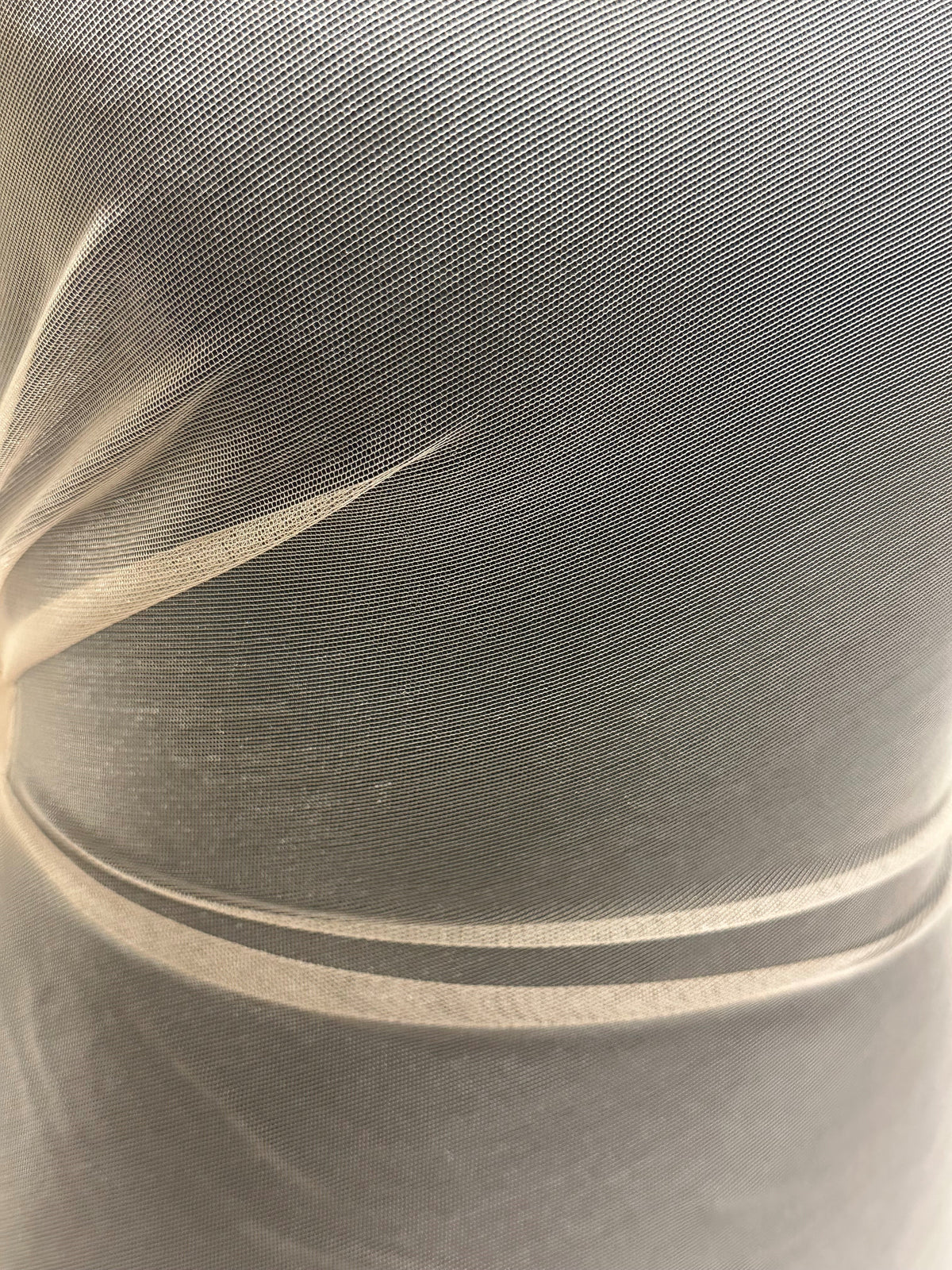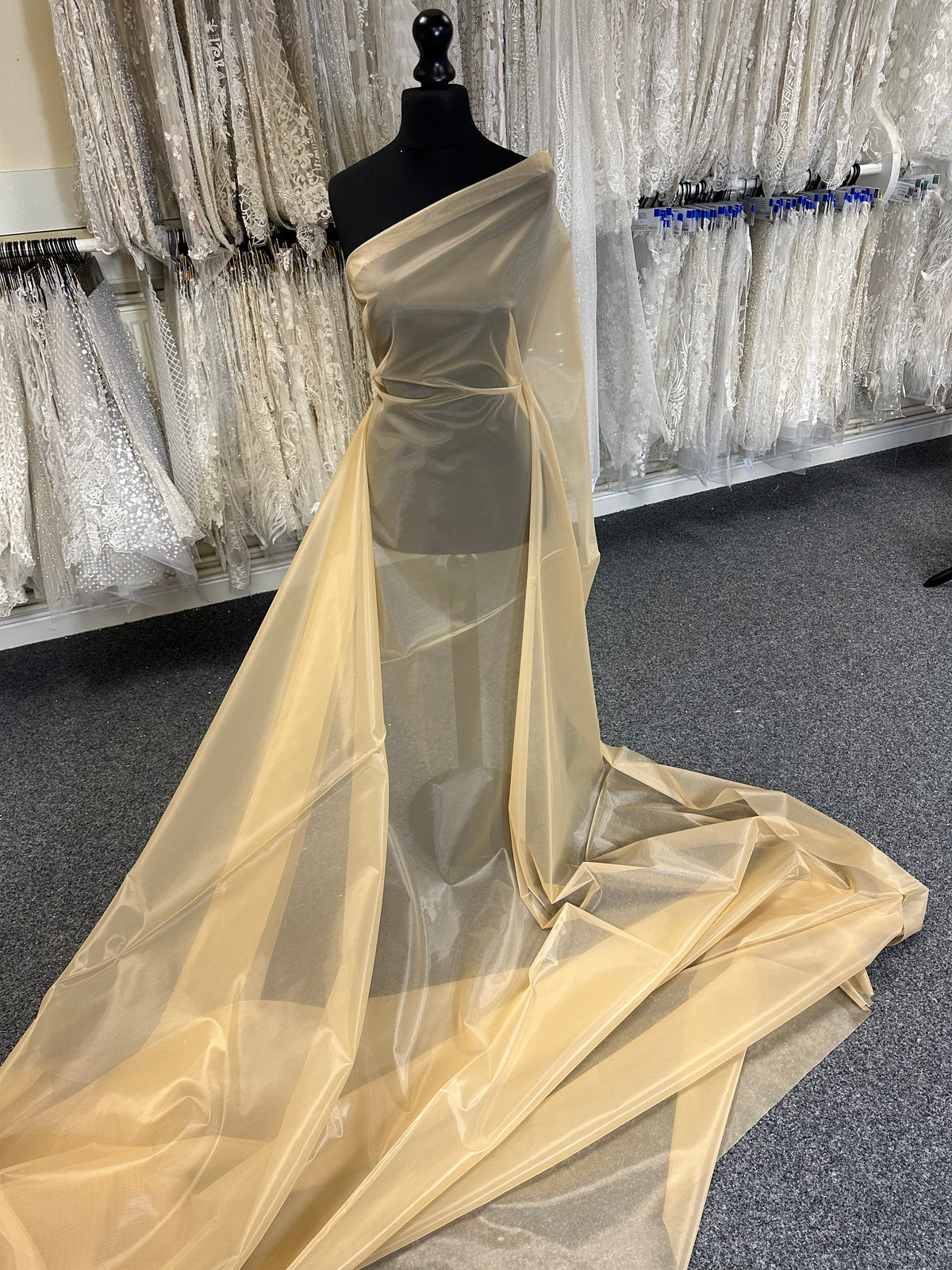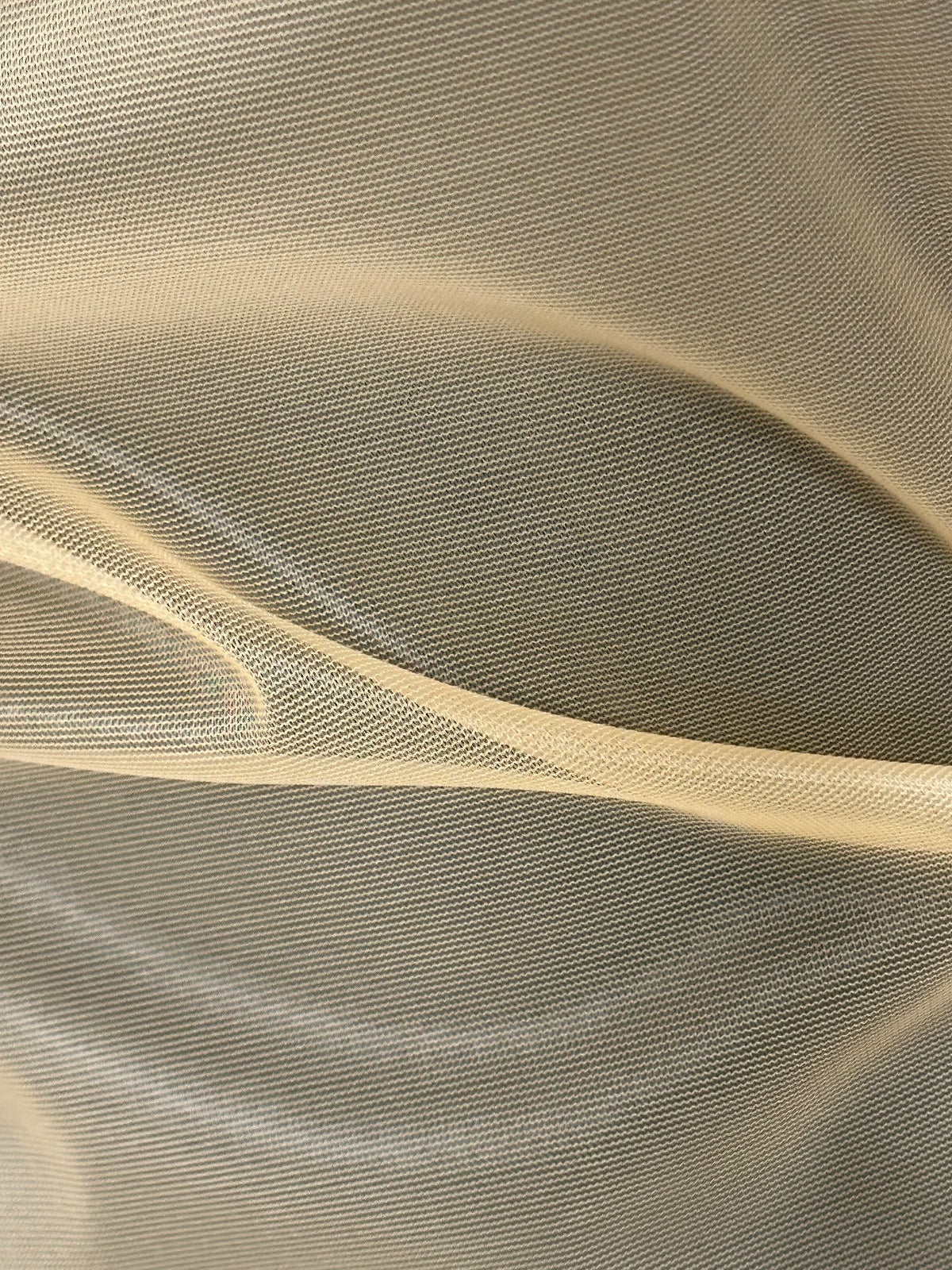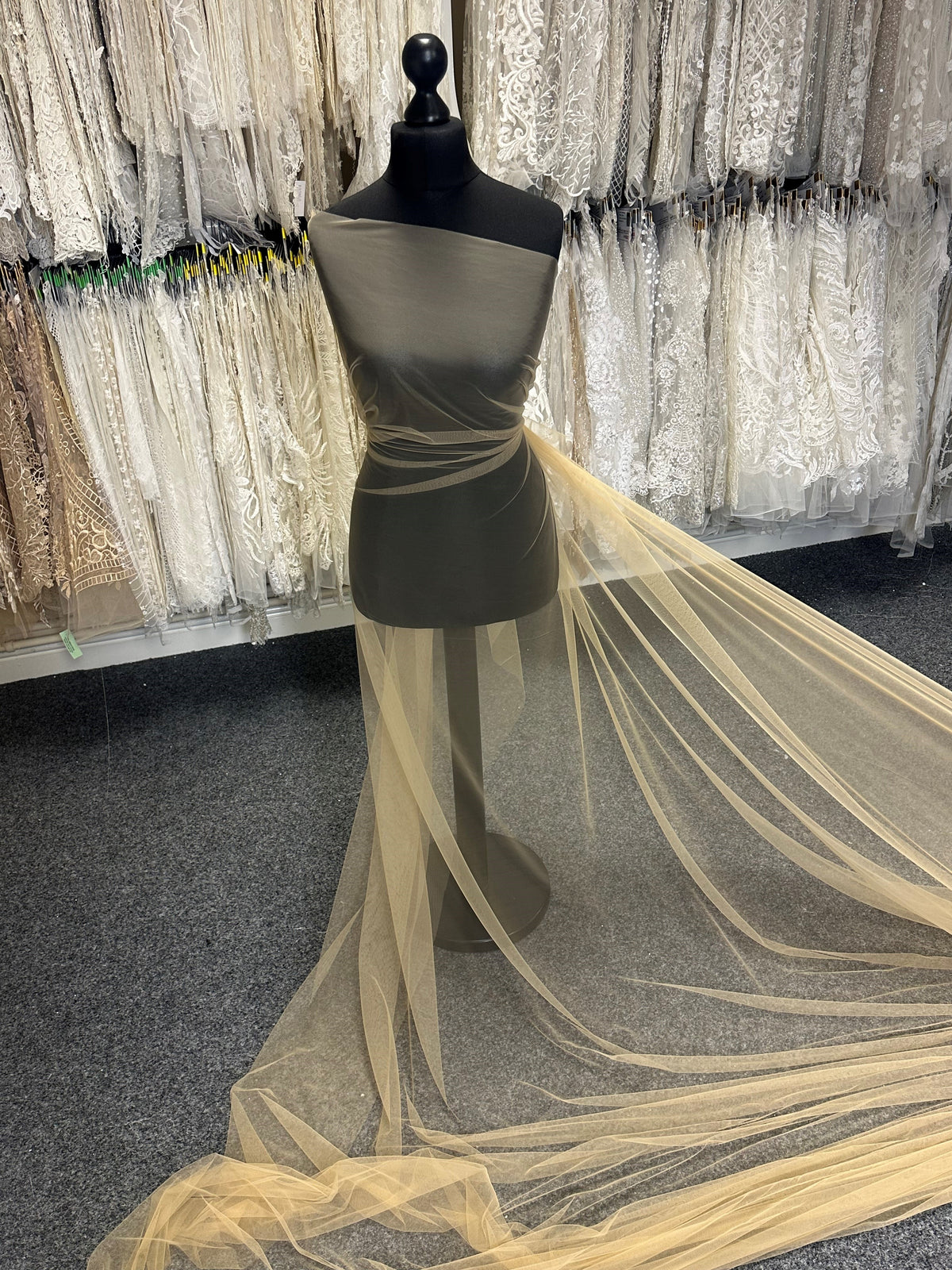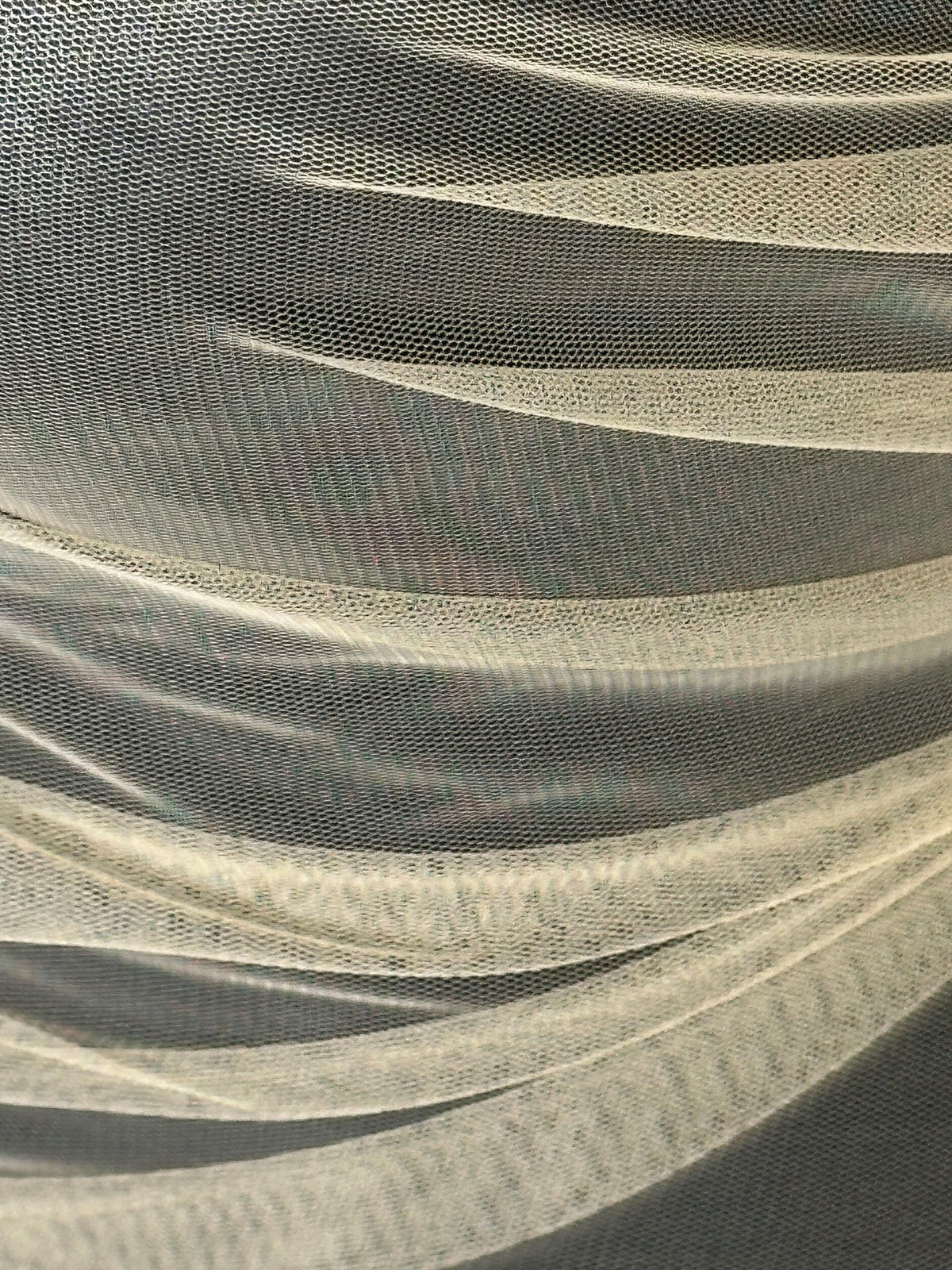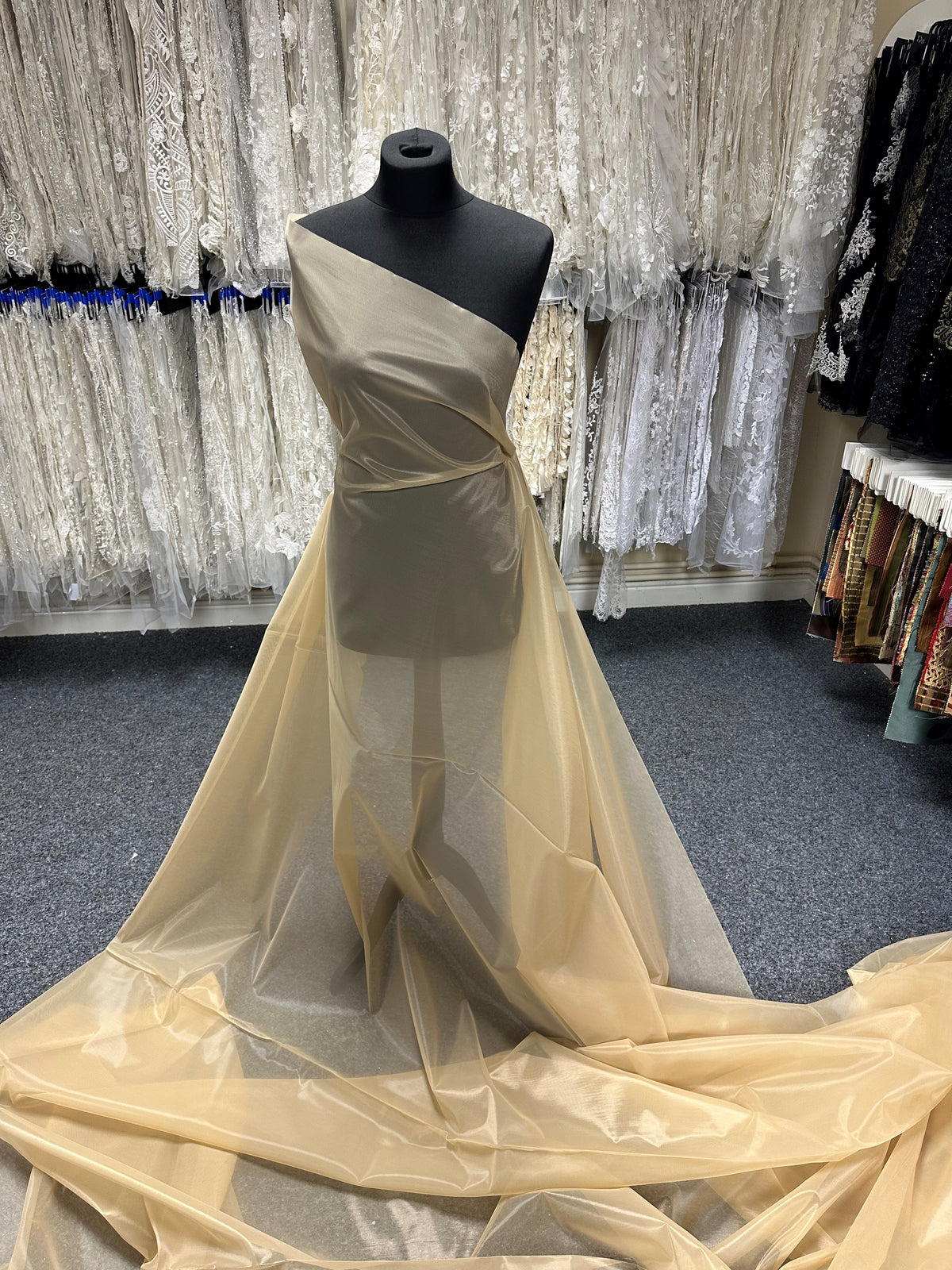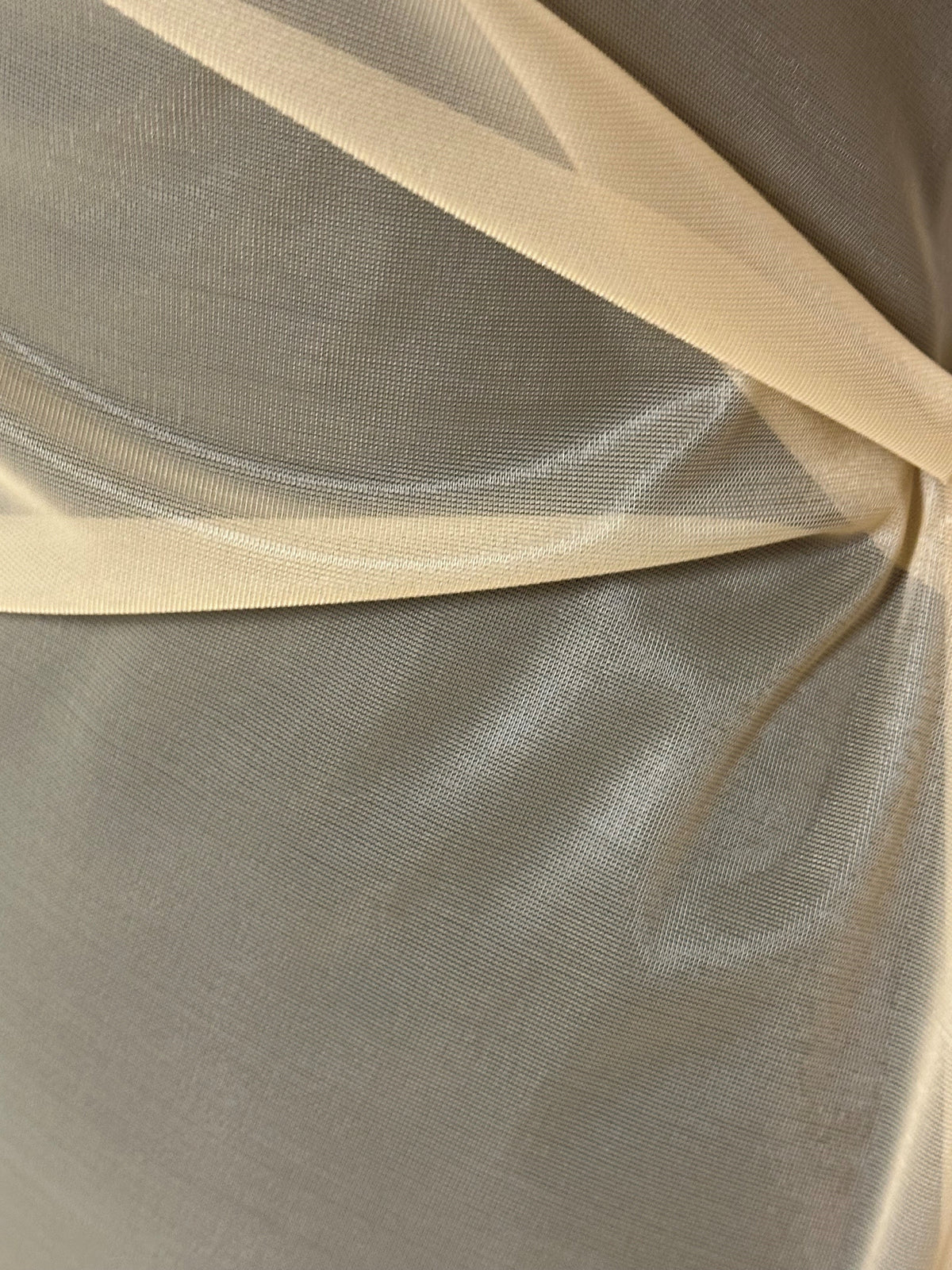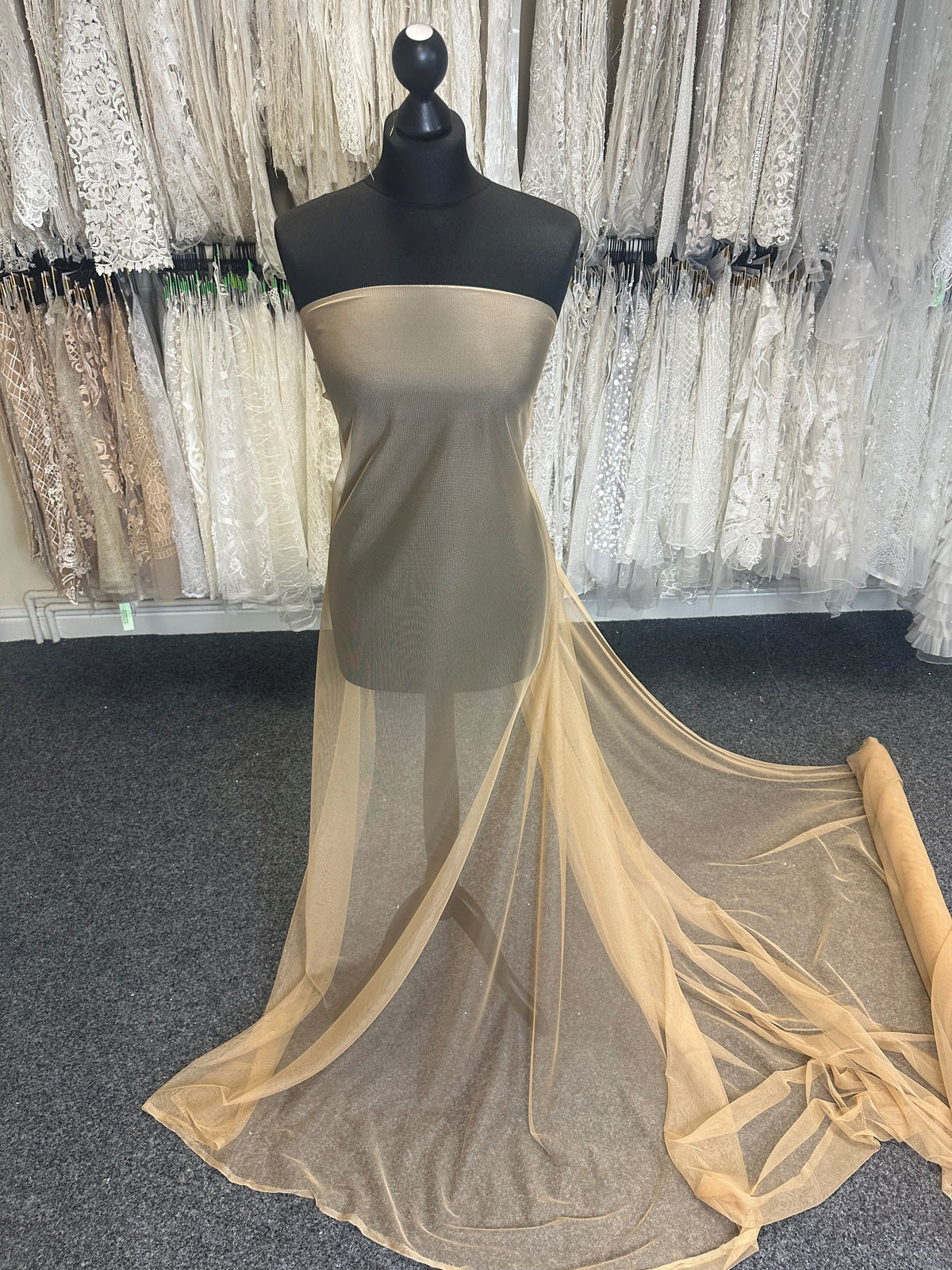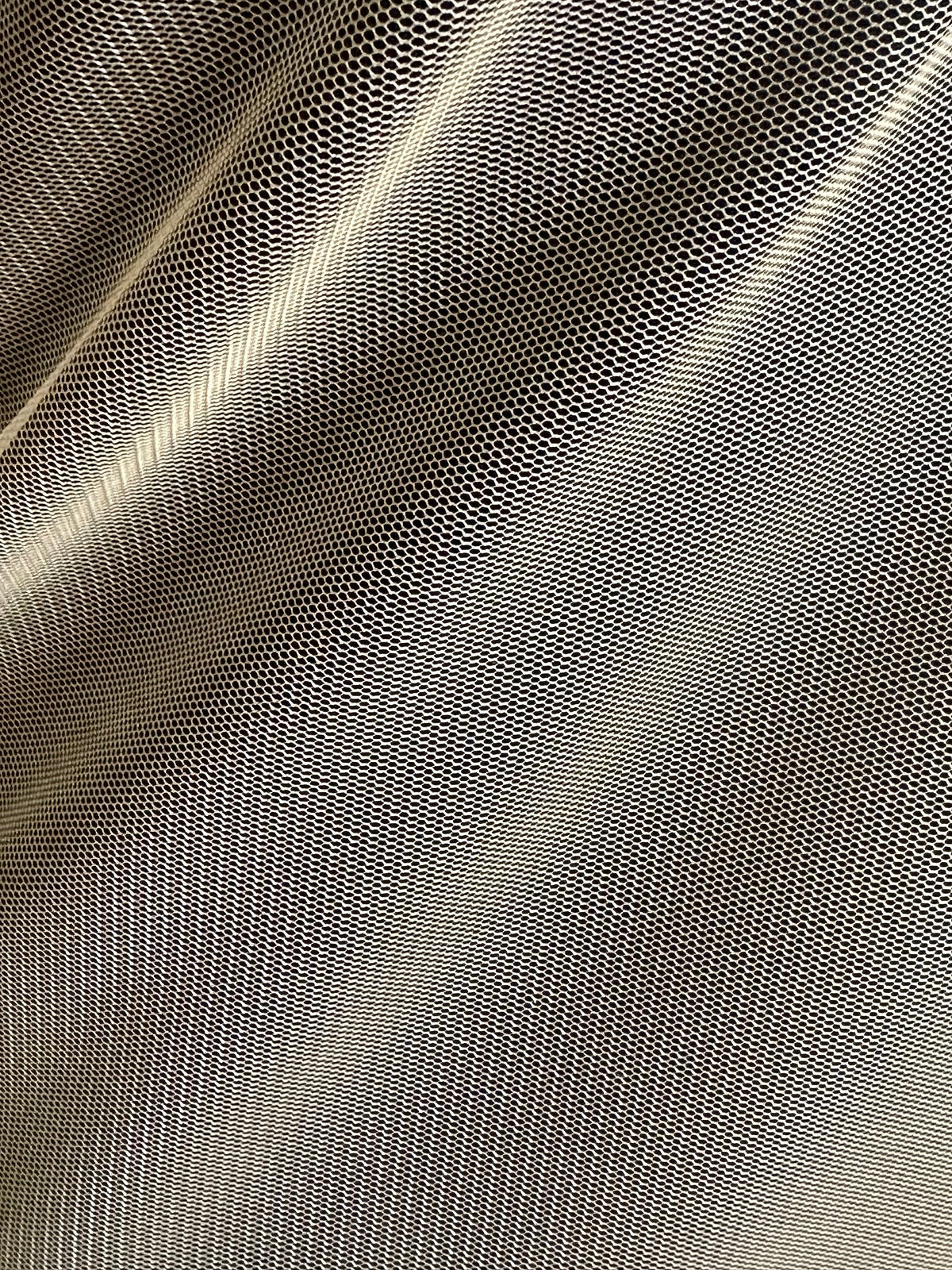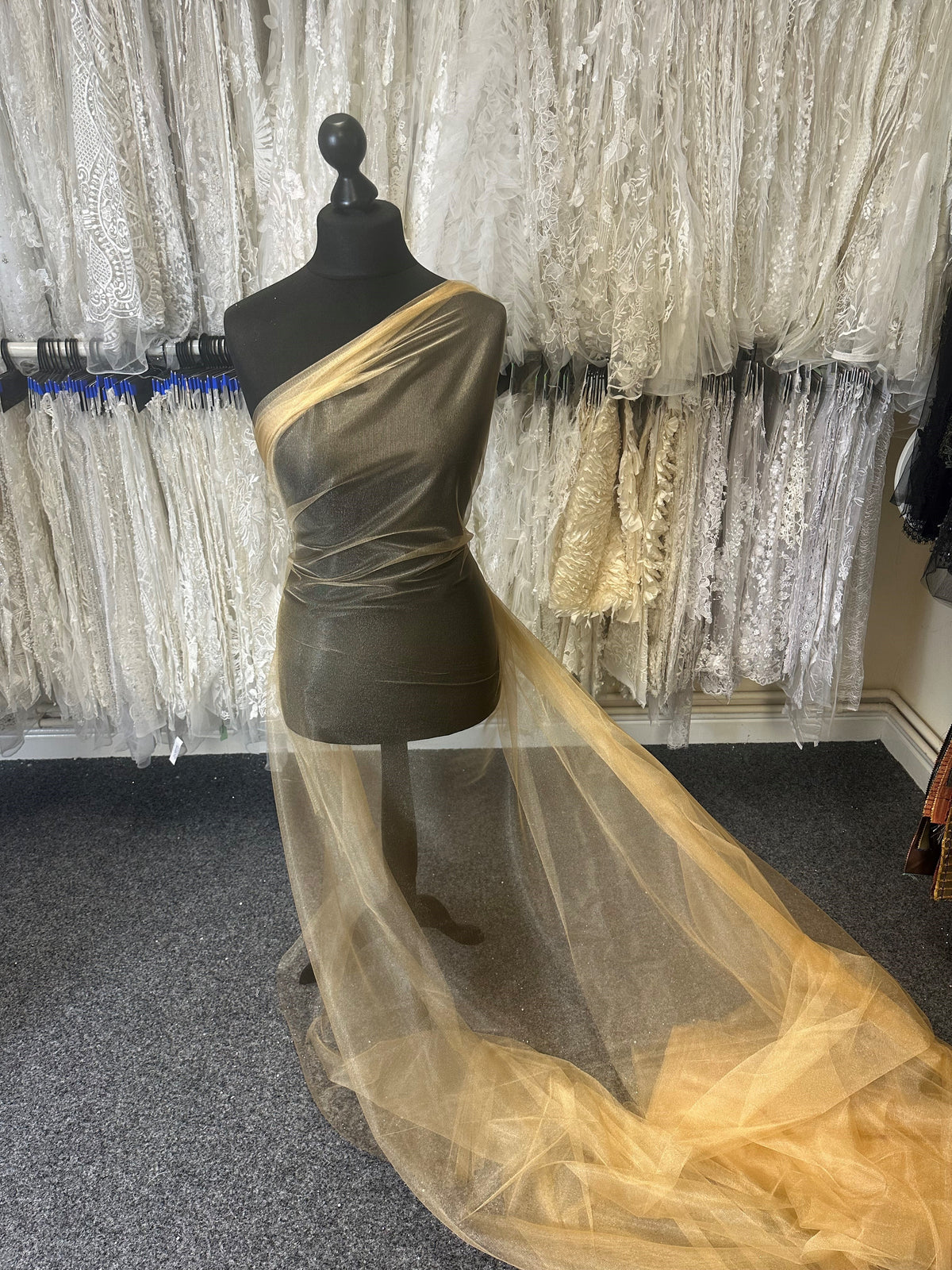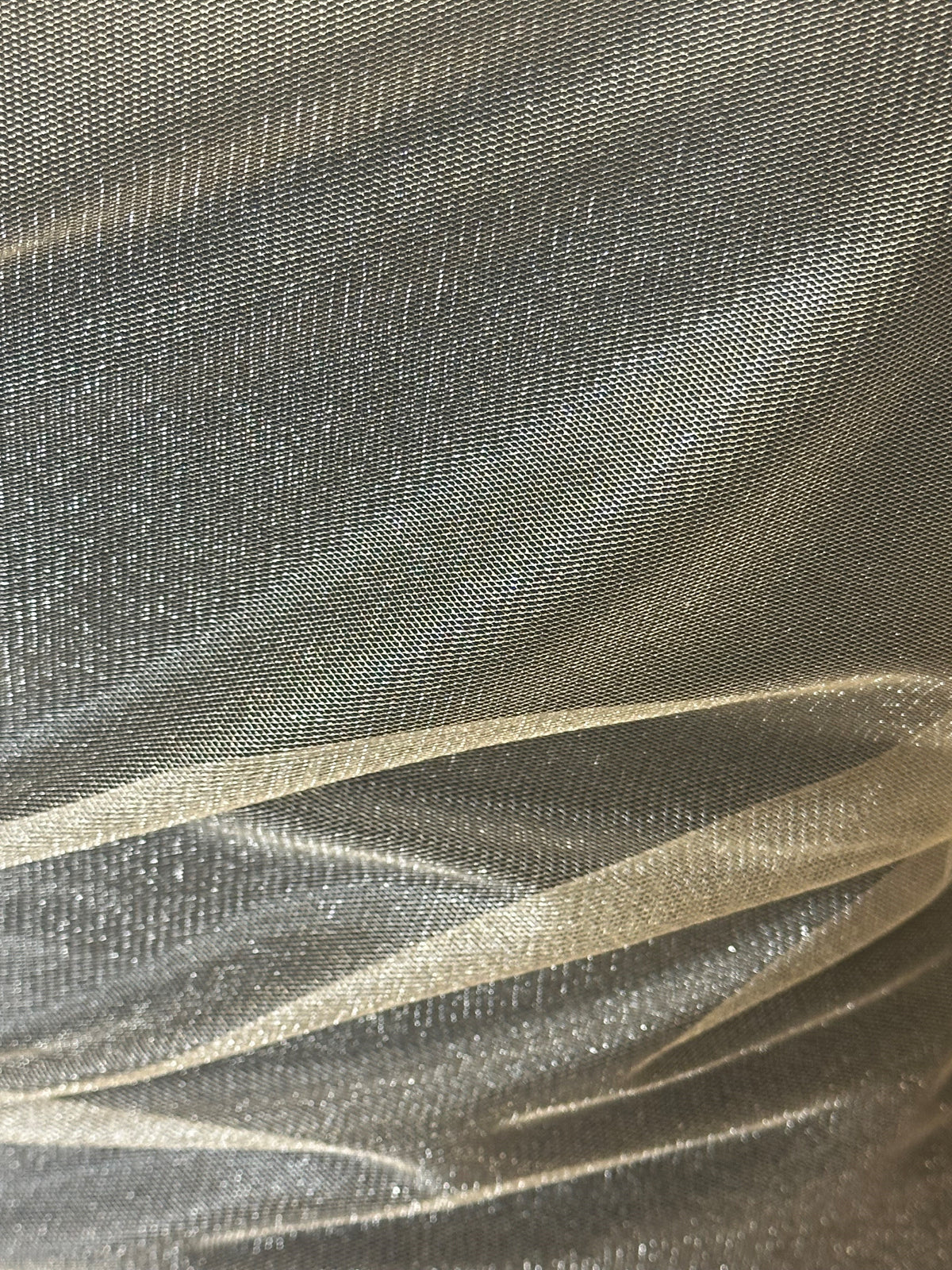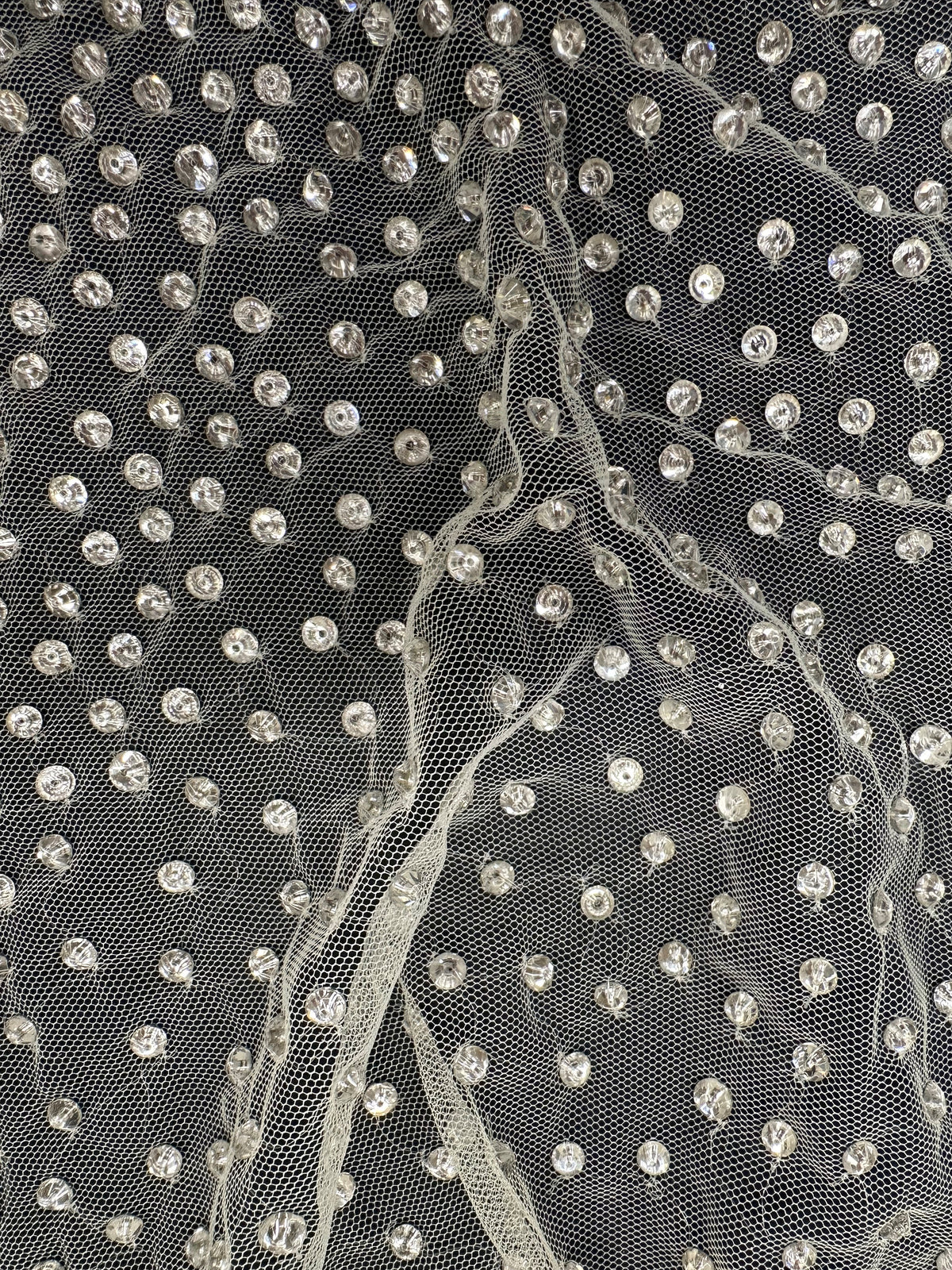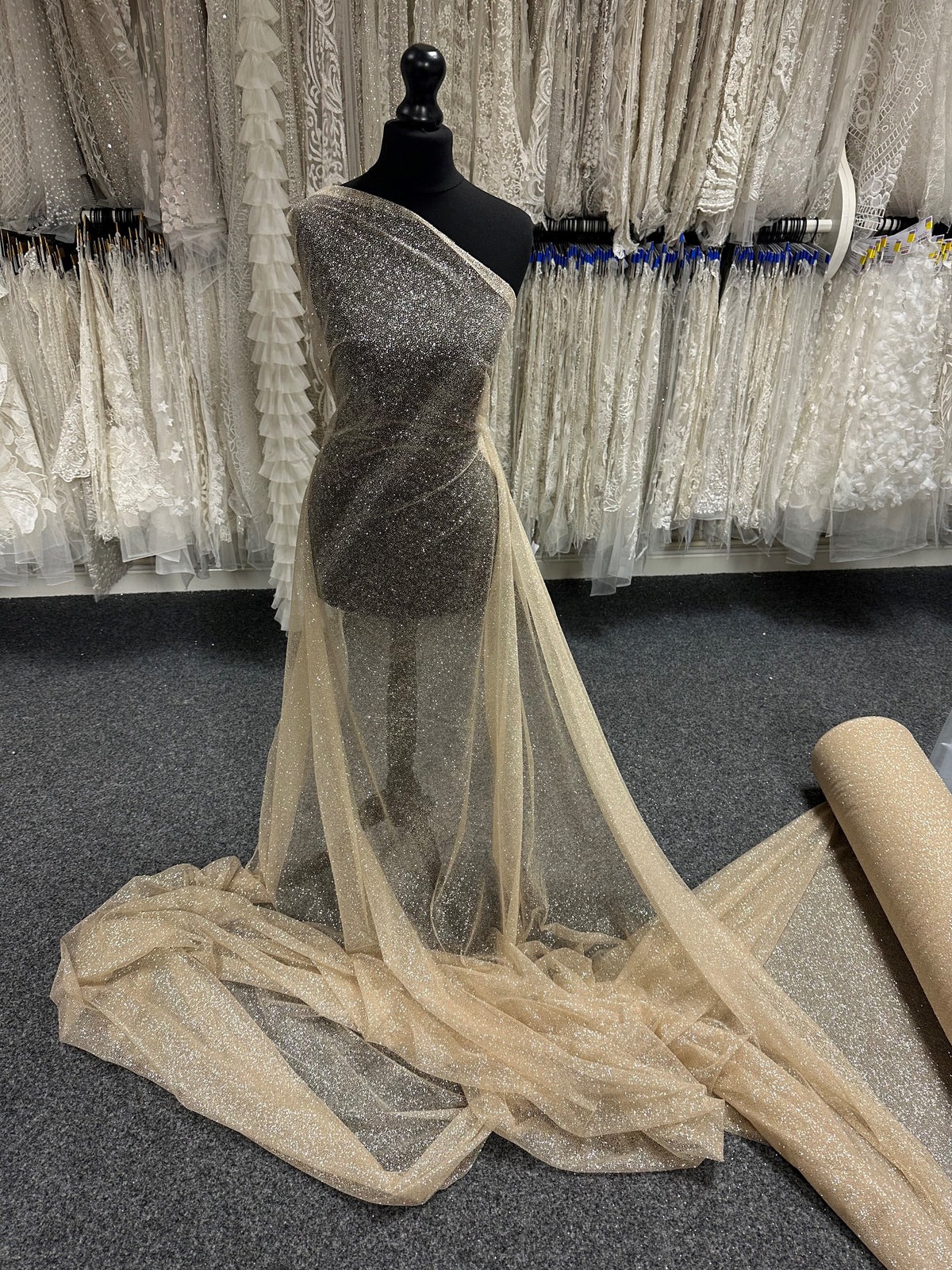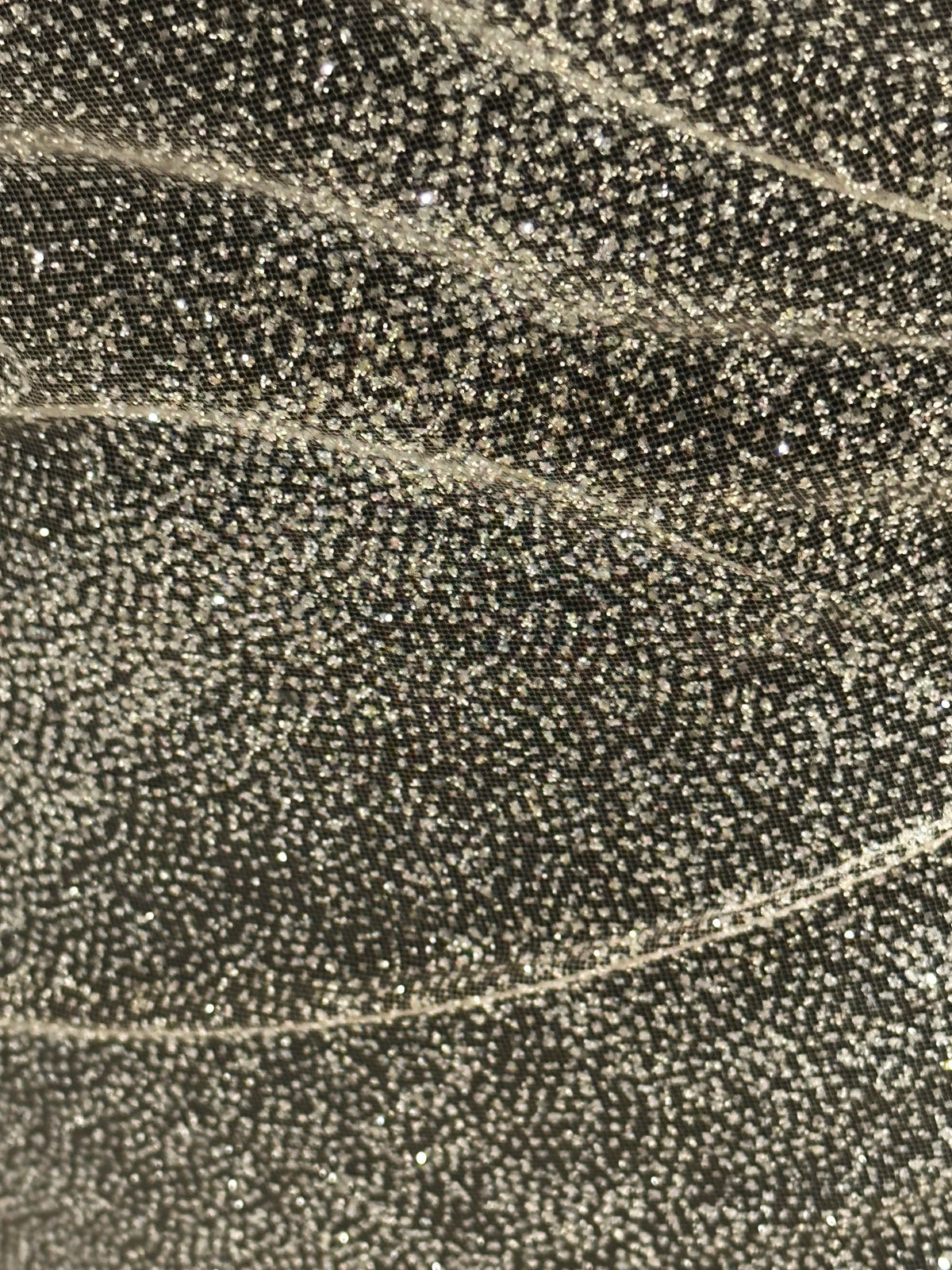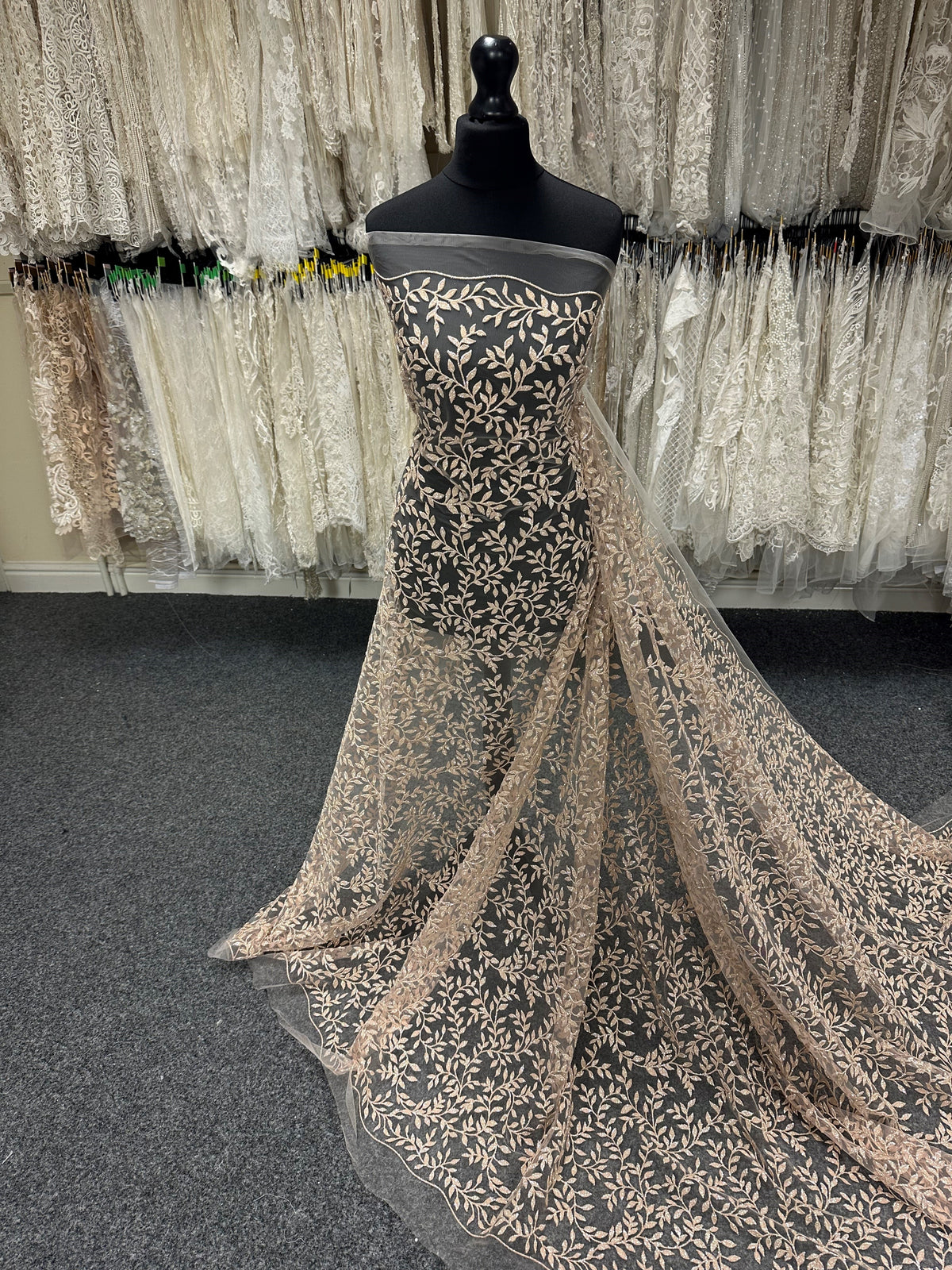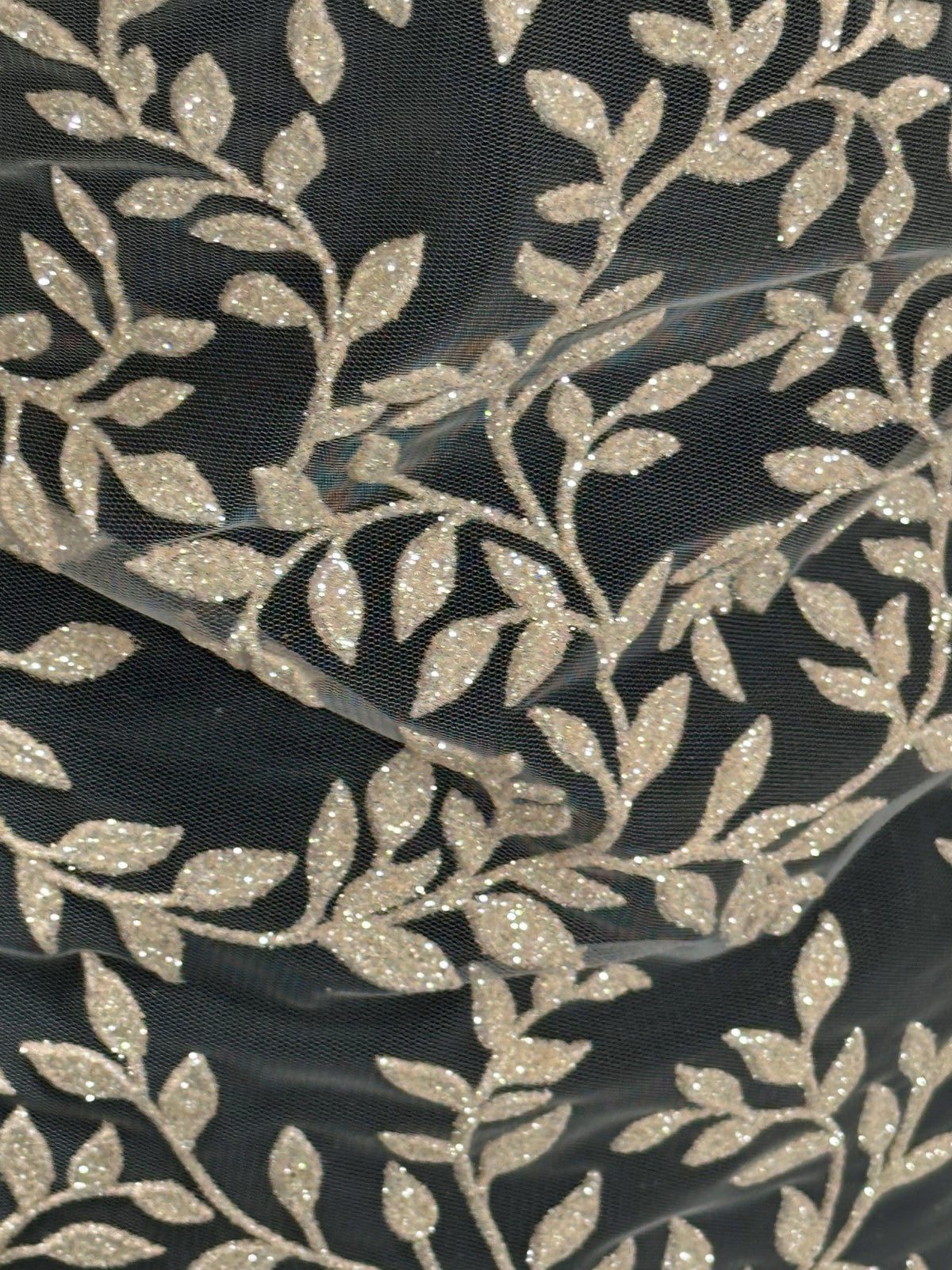As bridal trends evolve, invisible tulle for wedding dresses has become a staple in the fashion world, beloved for its versatility and many available finishes. This article explores the key advantages of sheer bridal tulle, from its various applications to practical advice on how to choose, purchase, and work with this iconic fabric.
What makes transparent tulle ideal for wedding dresses?
Transparent tulle is renowned for its almost weightless look. It enhances intricate details like embroidered lace, sequins, or layered volumes. Made from polyester, nylon, or polyamide, it combines finesse, flexibility, and durability.
Its transparency varies depending on the weave density. Nude tulle, extremely subtle, is ideal for layering or creating delicate bridal accessories such as long veils, capes, or fine gloves.
Main uses of transparent tulle in bridal fashion
Transparent bridal tulle fabric is often layered over other fabrics such as organza or chiffon, or used to create fluid skirts that are both comfortable and stylish. Designers love it for its lightness and ability to play with opacity.
Full skirts and controlled volume
Perfect for creating majestic silhouettes, sheer tulle is layered to build volume while maintaining flow and comfort. Designers can play with pleats, layering, and transparency for varied effects.
Veils and airy accessories
The transparent tulle veil remains a bridal classic. Lightweight and elegant, it reveals the bride’s hairstyle and makeup while adding a romantic touch. Tulle is also used to craft sleeves, boleros, capes, and gloves enhanced with lace or embroidery.
How to distinguish between types of transparent tulle
Classic, soft, and crystal tulle
Classic tulle offers structure, ideal for well-shaped gowns. Soft tulles is more flowing and ideal for light, romantic styles. Crystal tulle has a subtle shimmer and adds a glamorous touch.
Illusion and nude tulle
Illusion tulle is nearly invisible—ideal for illusion sleeves or necklines without visible seams. Nude tulle blends with different skin tones and highlights decorative details like lace or beading.
What to consider when buying transparent tulle for bridal gowns
- Transparency level (illusion, nude, crystal, etc.)
- Softness and comfort against the skin
- Color options (white, ivory, champagne, nude, etc.)
- Compatibility with lace, embroidery, sequins, etc.
- Fabric width and availability by the metre
- Fiber type (nylon, polyester, polyamide)
Always request a fabric sample before ordering to evaluate elasticity, softness, and compatibility with your dress materials.
Designing and sewing a wedding dress with transparent tulle
Sewing with tulle requires precision. Cut it on a flat surface, use tissue paper to reduce static, and choose fine needles with tight stitches for clean seams.
Invisible seams and modern layering
Invisible seams are key. Fold and stitch the edges carefully to avoid fraying. Add lace trims or ribbons for extra visual richness and structure.
Practical tips for a flawless finish
Prepare your pattern in advance, baste pieces by hand, and use a warm iron for positioning. Complete your bridal ensemble with matching accessories like a cape, shawl, or bolero to enhance every detail.
Inspiration and bridal trends with transparent tulle
Today’s bridal fashion embraces illusion effects, light play, and lace inserts. Invisible sleeves, light overskirts, or touches of sparkle create gowns that are stunning yet weightless.
Perfect pairings with other fabrics
Pairing sheer tulle with organza or matte satin creates striking contrasts. Whether you’re aiming for a romantic or graphic look, layering is key to defining your style.
Transparent tulle as a tool for customization
Soft transparent tulle is perfect for adding embroidery, sequins, or lace motifs. It has become a must-have material for designing a truly personalized and modern wedding dress.


